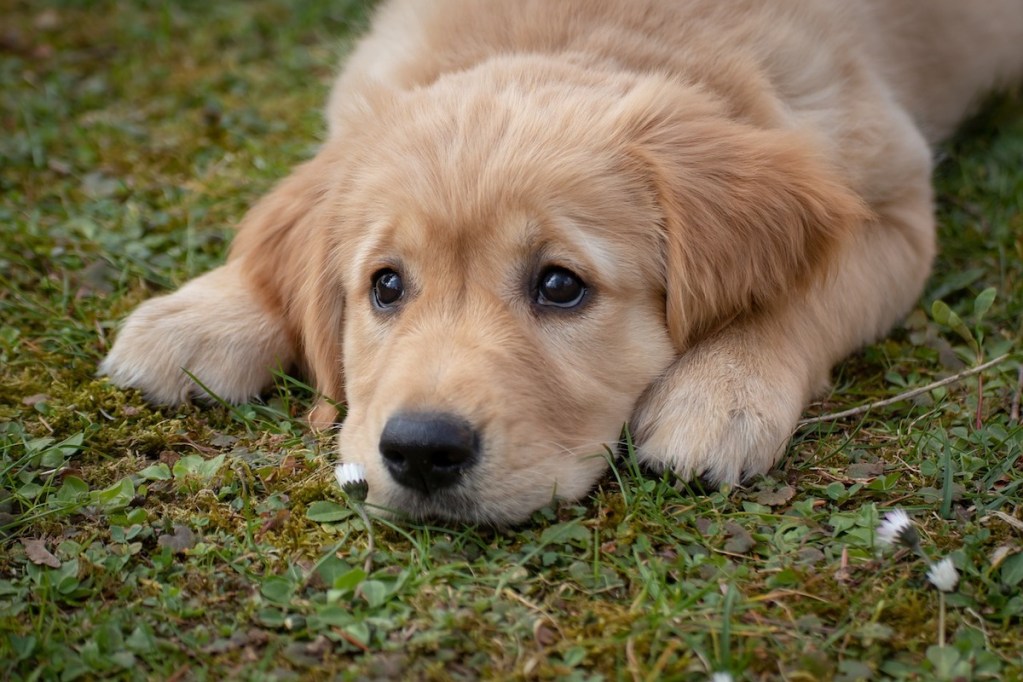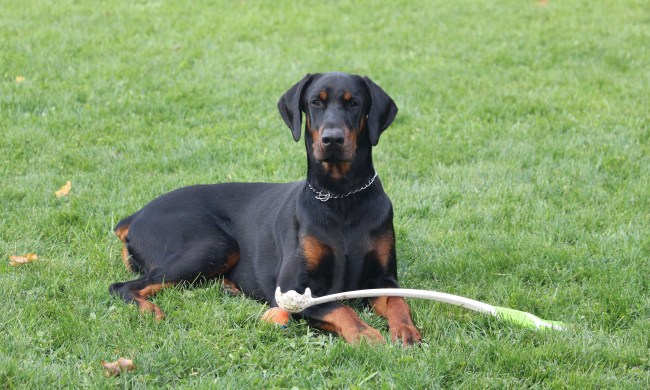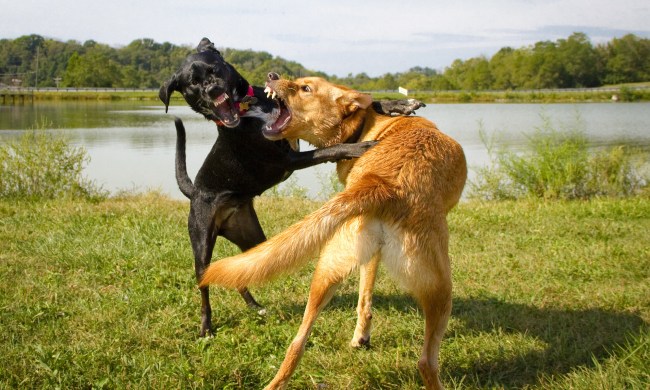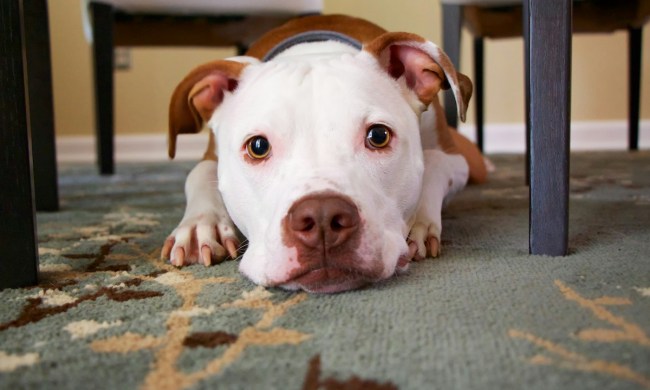The golden retrievers are at it again. Well known for being playful and goofy, these beasties lack one dog-defining characteristic: a healthy dose of stranger danger. In the mind of a golden, there’s no such thing — only a new friend waiting to happen. This viral video takes that flaw to its natural conclusion when a beautiful goldie proudly invites a bike thief into his garage.
@abc7chicago Guard dog or accomplice? This gentle soul befriended a thief before watching him take off with his owner’s property, and the unlikely friendship was all caught on video. #dogsoftiktok #dog #dogs #news
The video is a snippet from a broadcast and is entitled “Guard dog or accomplice?” on TikTok. The newscasters explain that a $1,000 e-bike was stolen out of a garage, and we all get to witness the scene. A sweet pup goes right up to the presumed thief and demands pets and belly rubs. The bike thief happily obliges and looks a little confused, perhaps unsure if he should stick to his original plan after meeting such a delightful pooch.
Commenters immediately pointed out that this approach is classic golden retriever behavior, with one top poster, emily remarking, “Such a golden thing to do. My dog too.” Another, Annchris10, mentioned that they had a similar thing happen and explained, “We have the same experience like this. Our mountain bike was stolen and our golden was very welcoming of the thief!?”
Some even went so far as to give the robber a bit of credit, like Tabz, who said, “Shouldn’t have left the garage open, but love this guy, he was kind to the dog!?” It’s hard to be too mad after watching that sweet exchange. Finally, JoeGrine592 had a good theory: “The dog actually was the one who sold the bike… it wasn’t stolen… sold for belly rubs.” We’re here for that twist.

Why do golden retrievers make such bad guard dogs?
The reason is simple: Because they are so social, they don’t do well at distinguishing friends from foes. This is why they make great family pets — they put loving humans above all else. It’s also why they often work well as guide dogs and service animals. But while they can be protective and loyal, don’t expect the average golden pup to face off against an intruder. Getting the naturally happy-go-lucky breed to learn how to guard takes a lot of training from a young age, although it can be done. No matter what, a golden retriever shouldn’t be the go-to breed for this job and should stick to important tasks like jumping on their owners and licking people’s faces.
In this case, while the adorable retriever failed in his duty to watch out for the bike, he succeeded in giving us all the entertainment we needed. Perhaps he should get a sidekick with a few more guard dog tendencies for next time — maybe a German shepherd or chihuahua could help teach him a few things.



